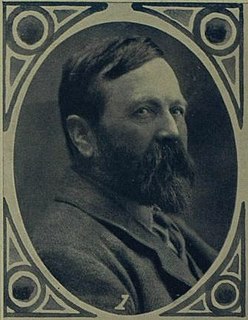Related Research Articles
There have been various groups in Canada that have nominated candidates under the label Labour Party or Independent Labour Party or other variations from the 1870s until the 1960s. These were usually local or provincial groups using the Labour Party or Independent Labour Party name, backed by local labour councils or individual trade unions. There was an attempt to create a national Canadian Labour Party in the late 1910s and in the 1920s, but these were only partly successful.

Frederick William Jowett was a British Labour politician.
The 1888 Mid Lanarkshire by-election was a parliamentary by-election held on 27 April 1888 for the House of Commons constituency of Mid Lanarkshire in Scotland.

Sir William Pollard Byles was a British newspaper owner and radical Liberal politician.
The 1902 Cleveland by-election was a parliamentary by-election held for the House of Commons constituency of Cleveland in the North Riding of Yorkshire on 5 November 1902.

Elections to the Preston City Council took place on 5 May 2011, the same day as other 2011 United Kingdom local elections. This was also the date of the 2011 United Kingdom Alternative Vote referendum. At this election, The Labour Party regained majority control of the council.
The 1897 Barnsley by-election, was a by-election held on 28 October 1897 for the House of Commons of the United Kingdom. It was notable for its role in the development of the Independent Labour Party.

Edward Robertshaw Hartley was a British socialist politician.
A by-election was held for the British House of Commons constituency of Sheffield Attercliffe on 5 July 1894. It was the first parliamentary election contested by the Independent Labour Party.
The 1902 Dewsbury by-election was a by-election held in England on 28 January 1902 for the House of Commons constituency of Dewsbury in the West Riding of Yorkshire.
The Colne Valley by-election was a Parliamentary by-election. It returned one Member of Parliament (MP) to the House of Commons of the United Kingdom, elected by the first past the post voting system.
The Huddersfield by-election was a Parliamentary by-election. It returned one Member of Parliament to the House of Commons of the United Kingdom, elected by the first past the post voting system.

Frederick Brocklehurst (1866–1926) was a British political activist best known for his early involvement in the socialist movement.

Thomas Russell Williams was a British socialist politician.
William Pickles was a British trade unionist and political activist.
Bradford Trades Council brings together trade unionists in and around Bradford, in West Yorkshire in England.
The Bradford Labour Union was a political party based in Bradford in England, which was an important forerunner of the Independent Labour Party.
The Colne Valley Labour Union (CVLU) was a political party based in the Colne Valley, in Yorkshire, in England. The first labour party organised on the basis of a Parliamentary constituency, it successfully backed Tom Mann as secretary of the Independent Labour Party, and Victor Grayson as the local Member of Parliament. Its successor is the Colne Valley Constituency Labour Party.
The Halifax Labour Union was an early labour movement organisation in Halifax in England.
Arthur George Field was a British trade unionist and socialist activist.
References
- 1 2 3 Pearce, Cyril (1975). The Manningham Mills strike, Bradford. Hull: University of Hull. pp. 76–77.
- 1 2 Patricia A. Dawson, "The Halifax Independent Labour Movement: Labour and Liberalism 1890-1914". In: Keith Laybourn and David James (1991), The Rising Sun of Socialism, Hertford: Stephen Austin & Sons. pp.45–74
- ↑ Howell, David (1984). British Workers and the Independent Labour Party, 1888-1906. Manchester: Manchester University Press. p. 213. ISBN 0719017912.
- 1 2 3 Laybourn, Keith; Reynolds, Jack (2018). Liberalism and the Rise of Labour 1890-1918. Routledge. ISBN 0429803214.
- ↑ Pugh, Martin (2011). Speak for Britain!: A New History of the Labour Party. Random House. p. 45. ISBN 0099520788.